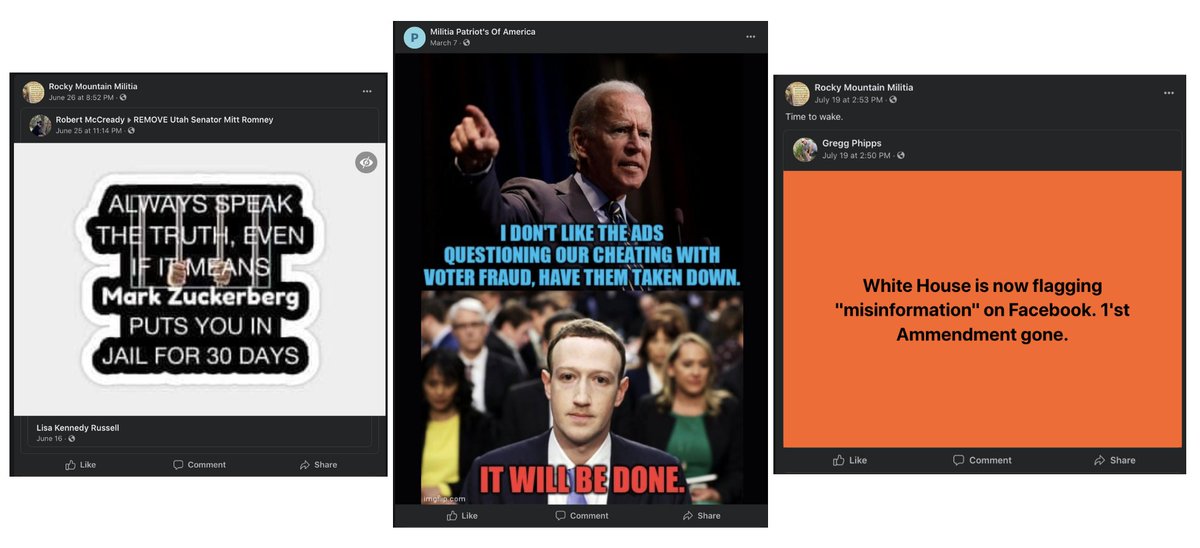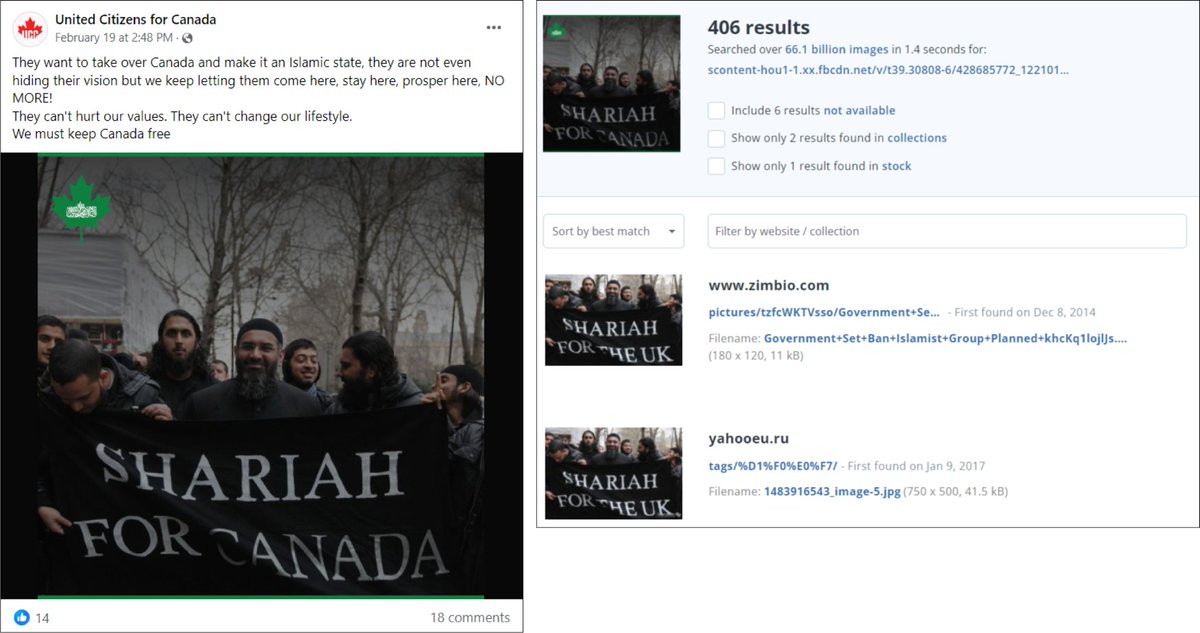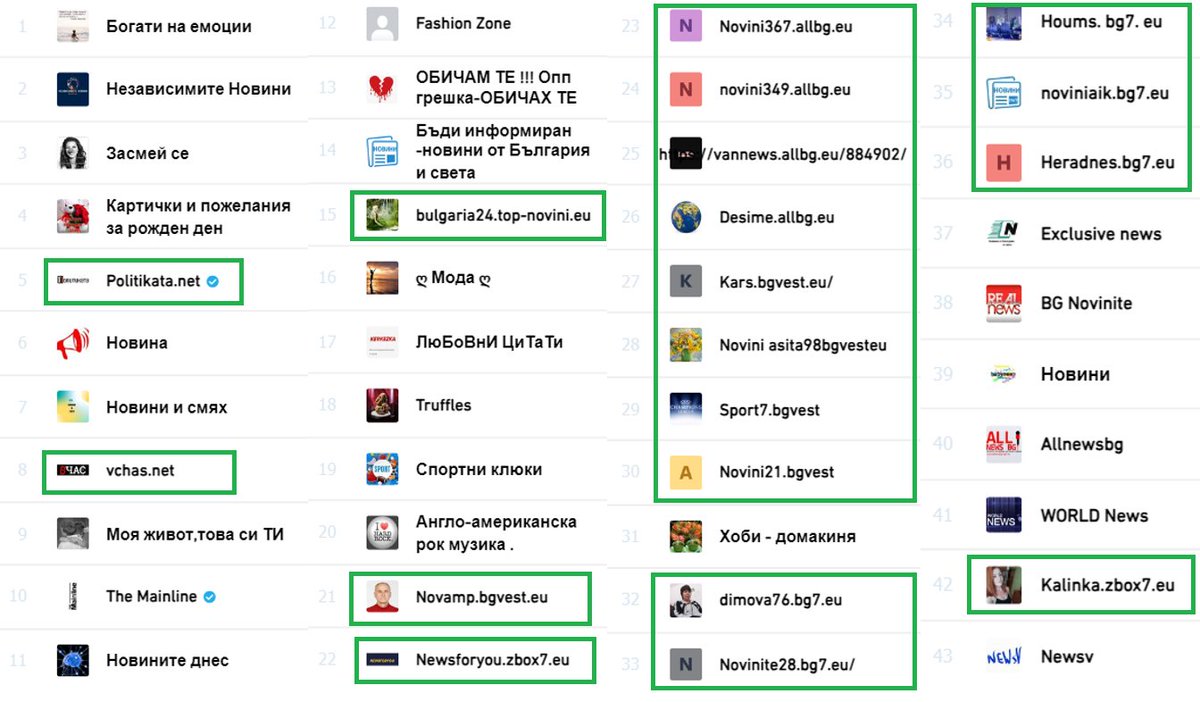Since the #January6th #Capitol attack, US-based militia movement groups have somewhat altered their strategies. @jaredlholt and @avaniyadav_ took a look at the state of play and identified 8 trends to know about. 🧵⬇️ medium.com/dfrlab/eight-t…
@jaredlholt @avaniyadav_ The first 3 deal w/ how militia groups are organizing online. In the fallout of #January6th, many groups are splintering, dissolving, & regrouping at a smaller scale - including rebranding & using @Facebook to attract users before migrating to alternative platforms like @telegram 



@jaredlholt @avaniyadav_ @Facebook @telegram Other militia groups have turned to hawking merchandise from sympathetic companies. One site, MyMilitia, uses a service called Flex Offers, offering users more than 45 affiliate links to retailers selling products likely to be popular w/ members: clothing, guns, ammo, tools, etc.
@jaredlholt @avaniyadav_ @Facebook @telegram The third organizing trend is directing audiences toward real-world events organized by sympathetic third parties - many of which are pro-Trump and focused on rewriting #January6th, including the “#FreePoliticalPrisoners” rallies. Countering adversarial causes are also popular. 

@jaredlholt @avaniyadav_ @Facebook @telegram The five remaining trends have to do with shaping narratives. The first is fomenting opposition to #COVID19 #vaccines & pandemic-related public health initiatives. Militia communities online seek to undermine confidence in vaccines, echoing broader anti-government sentiments. 



@jaredlholt @avaniyadav_ @Facebook @telegram Next, online militia communities amplify far-right content from publications that are rife with #disinformation and conspiracies. These posts are shared to further polarize members and drive engagement for said outlets, many of whom dominate social media, particularly @Facebook.
@jaredlholt @avaniyadav_ @Facebook @telegram As an existential threat to their community, online militias encourage anti-government sentiment in response to anti-extremism efforts by the government and platforms - linking moderation efforts to Dem. politicians to “prove” that the US is "falling" to leftist totalitarianism. 

@jaredlholt @avaniyadav_ @Facebook @telegram Heavily circulated through these communities is also disingenuous right-wing content that’s critical of racial justice movements in the US, including Black Lives Matter (#BLM) and the now zeitgeist-y misinterpretation of Critical Race Theory (#CRT). 

@jaredlholt @avaniyadav_ @Facebook @telegram Finally, and unsurprisingly, militias online mirror far-right and conspiratorial narratives fixated on "StoptheSteal" and claims that #Biden was elected illegitimately. These conspiracies, pushed by far-right influencers, are in no small part to blame for #January6th. 



@jaredlholt @avaniyadav_ @Facebook @telegram Read the rest of @jaredlholt / @avaniyadav_’s work tracking these eight trends that’ve arisen since #January6th’s attack on the #Capitol. Examples shown in this article are a representative sample to illustrate the larger dangerous trend in militias online.medium.com/dfrlab/eight-t…
• • •
Missing some Tweet in this thread? You can try to
force a refresh










